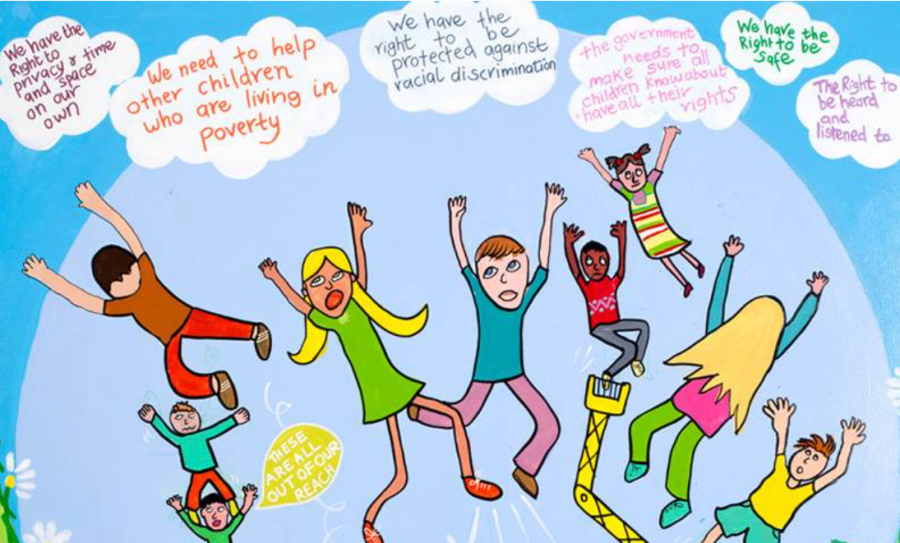by Cathy McCulloch, co-founder and co-director of Children’s Parliament
Welcome to 2021 and THE YEAR OF CHILDHOOD! The year we celebrate Children’s Parliament’s twenty-fifth birthday and the year in which the most important legislation to affect children and families comes before the Scottish Parliament.
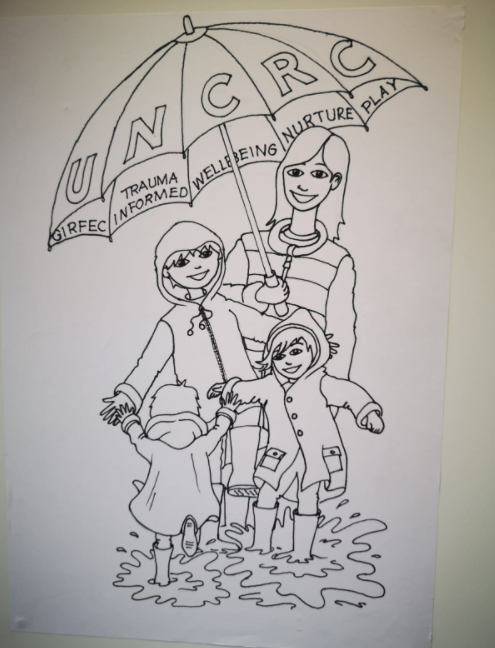 For those of us who work with or who care for children, a year that celebrates and challenges our notions of childhood is an easy thing to get behind. The Year of Childhood is more than a simple celebration. Getting childhood right is everyone’s business. Childhood is the most important time in our lives, a time when lifelong health and wellbeing outcomes are set and where habits of a lifetime are formed. It is a time to reflect on the kind of society we wish to be part of and to articulate what we need to do to achieve a society that reflects the needs of all its citizens.
For those of us who work with or who care for children, a year that celebrates and challenges our notions of childhood is an easy thing to get behind. The Year of Childhood is more than a simple celebration. Getting childhood right is everyone’s business. Childhood is the most important time in our lives, a time when lifelong health and wellbeing outcomes are set and where habits of a lifetime are formed. It is a time to reflect on the kind of society we wish to be part of and to articulate what we need to do to achieve a society that reflects the needs of all its citizens.
In March 2021, The Scottish Parliament is expected to incorporate the United Nations Convention on the Rights of the Child into Scots law, joining only a handful of countries to have done so. Belgium, Norway, Iceland, Finland, Sweden and Spain have made the legislative commitment, putting prevention, accountability and empowerment at the heart of childhood. Incorporation of the UNCRC is a landmark development and a sign of a country that is prepared to be held to account for the way it treats its youngest citizens.
Prevention, accountability and empowerment
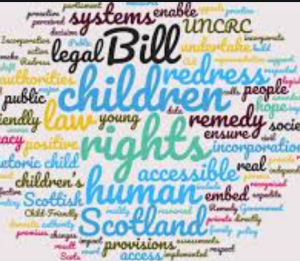 Prevention comes first because, by making human rights the foundation of all we do with (and for) children, we’ll have to ensure that children and families have what they need for children to thrive. Accountability comes next because, if public bodies don’t meet the requirements of the legislation, children (or their representatives) will, for the first time, be able to take them to court on the basis of a breach of their human rights. Empowerment rounds off the legislative commitment because when a country lives according to a human rights approach, it must make sure that children know they have rights, that they understand what these rights mean and that they are supported to speak up when their rights are breached.
Prevention comes first because, by making human rights the foundation of all we do with (and for) children, we’ll have to ensure that children and families have what they need for children to thrive. Accountability comes next because, if public bodies don’t meet the requirements of the legislation, children (or their representatives) will, for the first time, be able to take them to court on the basis of a breach of their human rights. Empowerment rounds off the legislative commitment because when a country lives according to a human rights approach, it must make sure that children know they have rights, that they understand what these rights mean and that they are supported to speak up when their rights are breached.
But it’s much more than that. A human rights approach is rooted in respect and requires that children are brought up in environments of ‘love and understanding’. It is through positive relationships – with trust, kindness, empathy and respect for human dignity at their heart – that children develop understanding and behaviours that reflect these core values. For those who are new to human rights work, or who fear we’re on the way to children ruling the world, I can offer reassurance. Children’s human rights are simply a way of holding society to account for children’s health and wellbeing, and making sure they grow up healthy, happy and safe.
The UNCRC provides a set of minimum standards, taking into account the need to reflect children’s developing maturity and includes the right of children to be safe from harm, the right to be guided by parents or carers, the right to government help if they are poor or in need, the right to be listened to and the right to have their views taken into account in matters that affect them. You can find out more from Together (Scottish Alliance for Children’s Rights).
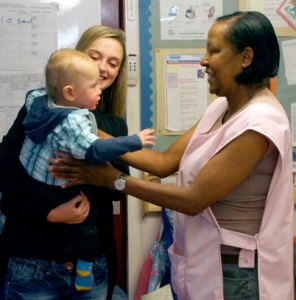 The most transformative effect of putting human rights front and centre will be the opportunity for us to work ‘upstream’, to work with parents-to-be, new parents and with children in their earliest years. Many endemic problems will be addressed through a human rights approach. For example, when budgeting for children’s rights is put at the heart of decision-making, policymakers will have to think differently about how and where to allocate financial support. We should see funding and resources going more often towards prevention, as opposed to mitigation.
The most transformative effect of putting human rights front and centre will be the opportunity for us to work ‘upstream’, to work with parents-to-be, new parents and with children in their earliest years. Many endemic problems will be addressed through a human rights approach. For example, when budgeting for children’s rights is put at the heart of decision-making, policymakers will have to think differently about how and where to allocate financial support. We should see funding and resources going more often towards prevention, as opposed to mitigation.
An end to the shouting?
In education, funds are often allocated to staff training in response to new initiatives (many of which offer really useful information and new understanding). However, initiatives are only as good as the people who deliver them, and the type of initiative to be delivered usually depends on the individual interests and experience of the person in charge. When the person in charge changes, the initiative often changes too.
Children’s experiences, therefore, are often entirely dependent on an individual practitioner’s personal interpretation of what kind of environment they wish to create. And children tell us that there are still too many schools where shouting at children is an everyday experience. They raise this issue consistently and it’s something that affects their ability to feel safe and happy in school – even, they tell us, when the shouting isn’t directed at them.
Embedding children’s human rights will change this – practitioners will no longer be able to decide that shouting is an acceptable practice and will have to consider how to change their practice to reflect human rights values. In an education system that is rooted in reward and punishment, on making children compliant as opposed to curious, we will need to support colleagues in education with these changes. We ask a great deal of those who work with and educate our children and if children’s rights are to become the force they’re intended to be, we’ll need to come together to create, support and sustain cultures that work for everyone – children and adults.
Unfearties and stories
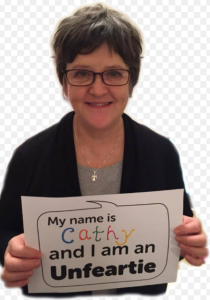 In 2017, Children’s Parliament established the ‘Unfearties’ movement. An Unfeartie is someone who is willing to stand up for and stand alongside children in support of their human rights. Children’s Parliament will celebrate its twenty-fifth year by developing the Unfeartie movement in order that more adults think about the actions they can take to make sure we properly resource and support childhood. There are many wonderful and inspiring Unfearties and we hope you will consider becoming part of the Unfearties gang. Please join us at www.childrensparliament.org.uk/unfearties
In 2017, Children’s Parliament established the ‘Unfearties’ movement. An Unfeartie is someone who is willing to stand up for and stand alongside children in support of their human rights. Children’s Parliament will celebrate its twenty-fifth year by developing the Unfeartie movement in order that more adults think about the actions they can take to make sure we properly resource and support childhood. There are many wonderful and inspiring Unfearties and we hope you will consider becoming part of the Unfearties gang. Please join us at www.childrensparliament.org.uk/unfearties
All of us at Children’s Parliament are looking forward to amplifying work from around Scotland and beyond to demonstrate what ‘a good childhood’ looks like – the sort of childhood that nourishes children and equips them with the confidence and skills they need throughout their lives.
 So we are beginning Year of Childhood by collecting stories of childhood: What childhood experiences do you treasure? Who were the adults who created the opportunities for you to have these experiences? What qualities did they have? If your experiences are negative, what can we do to make sure children in 2021 have a happy and nourishing experience of childhood?
So we are beginning Year of Childhood by collecting stories of childhood: What childhood experiences do you treasure? Who were the adults who created the opportunities for you to have these experiences? What qualities did they have? If your experiences are negative, what can we do to make sure children in 2021 have a happy and nourishing experience of childhood?
We are planning to create a book of stories to mark our twenty-fifth birthday and we look forward to text, illustrations and photographs to illustrate a healthy, happy and safe childhood in 2021 and beyond. You can email your stories (of no more than 800 words) to info@childrensparliament.org.uk or post them to Children’s Parliament, Summerhall, Edinburgh EH9 1PL
Thank you in advance – and welcome again to the Year of Childhood.
Cathy McCulloch



